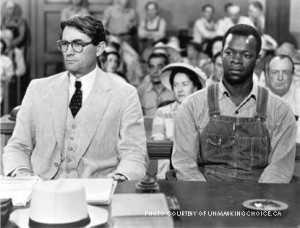
Atticus Finch may have gone unappreciated as students pretended to read To Kill A Mockingbird in school, but he most definitely should not have. Atticus, as you may remember, is the father of the main character/narrator, Scout. He is also a prominent lawyer in fictional Maycomb, Alabama in the early 1930’s. The setting is a cesspool of racism, but Atticus stands tall as he voices his beliefs against the ways of the townspeople.
Mr. Finch, though fictional, sets a moral standard so high, it makes sense he is not real. Being part of one of the most notoriously conniving professional groups, lawyers, Atticus Finch is nothing short of an anomaly in the town of Maycomb.
Having read the book with great admiration, I see many lessons presented in his actions that could be applied to life in Leesville, in the community, in our nation and in others. In a sense, the Atticus article series is an analysis of common issues somewhat simply solved by discussing “What would Atticus Finch do?”
Lesson #1: We are all humans here, and we are equal in the end.
If remembered for one act, Atticus Finch is remembered for his unlikely acceptance of the African American community in his town. From treating his hired help with decency to allowing his children to attend church with the African Americans to representing Tom Robinson in court, Finch obviously understands the human condition much differently than his white peers.
Miss Maudie, the neighbor and voice of clarification in TKAM, explains Atticus’ egalitarian attitude in a single phrase in Chapter 5: “[He is] the same in his house as he is on the public streets.” There you have it. Miss Maudie, whom we can infer from the novel has known Atticus for a decent amount of time, confirms Atticus Finch is a man of true virtue. His respect isn’t for one race or another, or simply one individual or another; Atticus respects those who deserve it–everyone.
But if we were to apply such an eye for equality to our community, would it not look beyond the racist citizens of towns like Maycomb? Personally, I think we would find that while we can apply it to racism/favoritism, we can also apply it to what we see both here and internationally: religious persecution. Anti-Muslim hate crimes seem to be the hot topic in the mass-consumed media. While America is known for its tolerance and diversity, we do not evade the centuries-long antagonism rejected by Atticus.
Considering the Chapel Hill tragedy, it seems Atticus Finch’s focus on the character of his peers has not quite inspired everyone. Despite this, the relevancy of his nonverbal message is one that transcends time and the different prejudices of choice of the eras.
Beautiful!